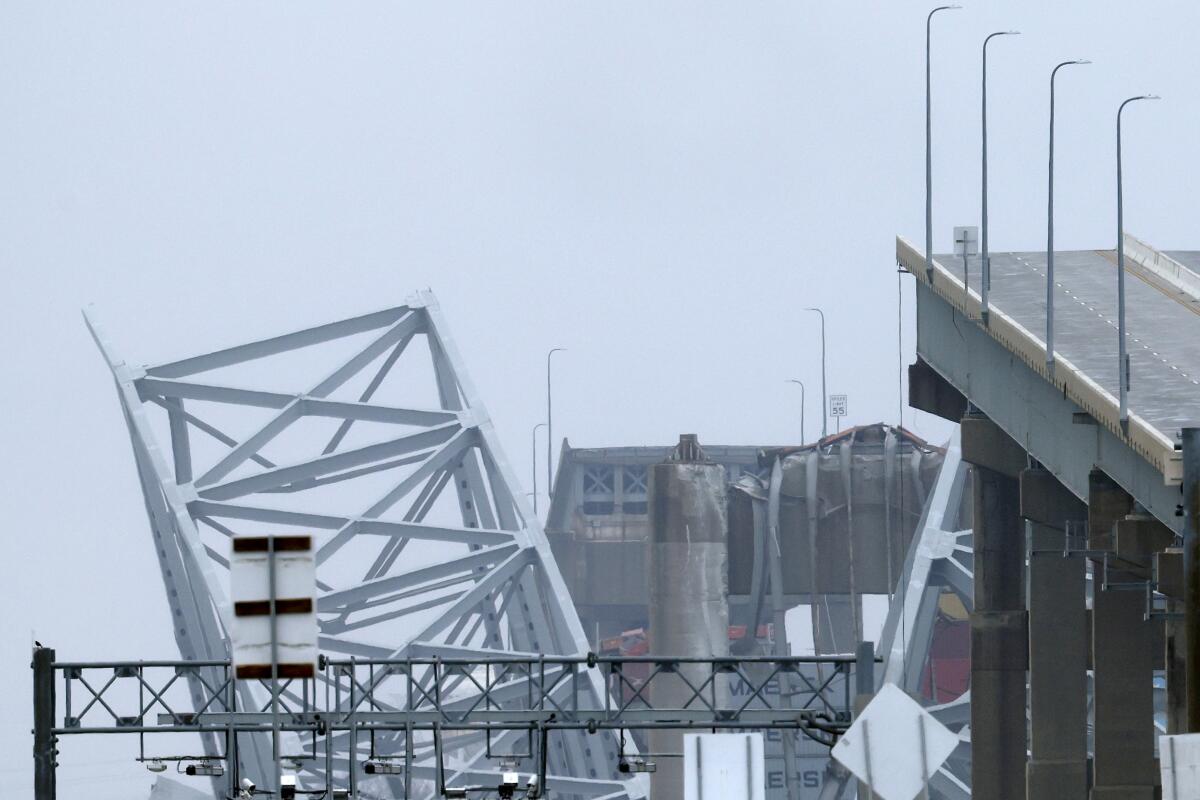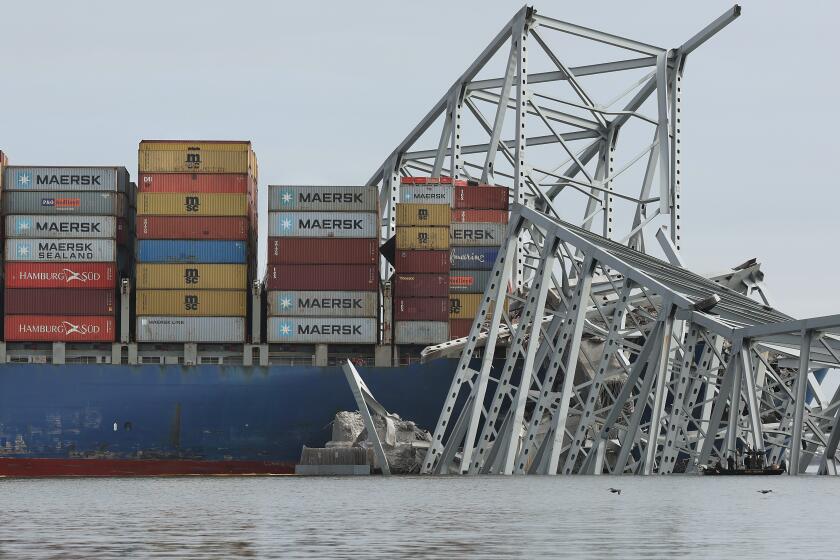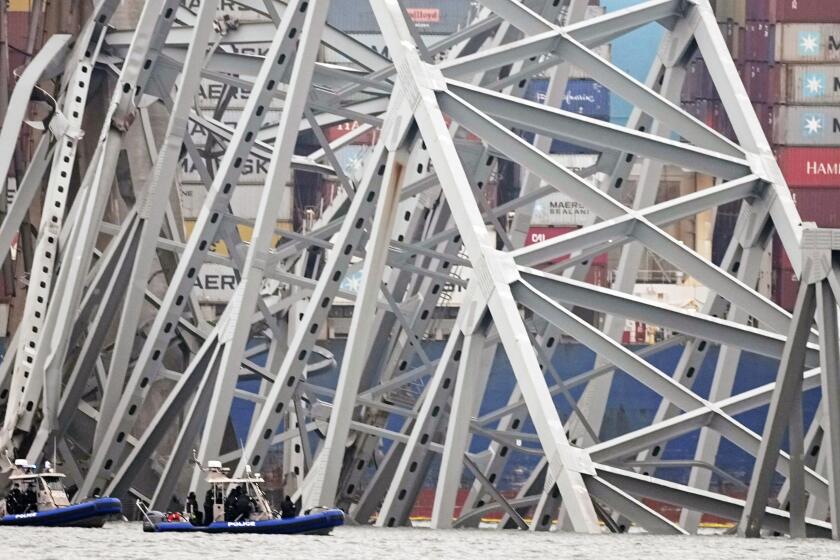Efforts underway to remove Baltimore bridge ruins; search suspended for 4 workers presumed dead

- Share via
Authorities started cleaning up the wreckage of the Francis Scott Key Bridge in Baltimore on Thursday after ending the search for the remaining four missing workers, presumed dead, who fell into the water when the bridge went down.
Eight people plummeted into the cold waters of the Patapsco River after a Singaporean cargo ship struck the bridge early Tuesday, causing the 1.6-mile span to collapse. Two people were rescued; one declined treatment and the other was hospitalized in critical condition.
Officials pulled the bodies of 35-year-old Alejandro Hernandez Fuentes of Baltimore and 26-year-old Dorlian Castillo Cabrera of Dundalk, Md., from a submerged red pickup truck near the bridge Wednesday morning, said Col. Roland L. Butler Jr. of the Maryland State Police.
Butler said authorities were turning their focus to a salvage operation. Officials halted the search for the other victims’ remains, he said, because of the dangerous conditions for the divers.
Experts say the Baltimore collapse does not expose significant vulnerabilities in the major bridges near ports across California. The ports of Los Angeles and Long Beach handle about 40% of U.S. container imports from Asia.
“We have exhausted all search efforts in the areas around this wreckage,” he added.
Butler said they believe the vehicles with the other victims are “encased in the superstructure and concrete that we tragically saw come down.”
Investigators with the National Transportation Safety Board also provided more details about the timeline right before the ship’s crash during a Wednesday evening news briefing.
Marcel Muise, the board’s investigator in charge of the investigation, said the agency recovered six hours of audio from the ship’s data recorder.
Multiple alarms were heard from the ship’s recorder at 1:24 a.m. shortly before the ship lost power, Muise said. The pilot of the ship asked nearby tugboats for help at 1:26 a.m. A minute later, the pilot ordered the cargo ship to drop the ship’s anchor and issued “additional steering commands.” The crash happened about 1:30 a.m.
There were 23 people aboard the vessel when it struck the bridge — 21 crew members and two pilots — Jennifer Homendy, the chair of the NTSB, said during the briefing.
The National Transportation Safety Board recovered the ship’s data recorder and will construct a timeline of events leading up to the crash.
The vessel was carrying 764 tons of hazardous materials, including flammables and corrosives, in 56 containers, Homendy said. Some of the containers were spotted in the water and others were “breached significantly on the vessel itself,” she said.
“It’s pretty devastating, certainly, seeing not just what’s going on with the cargo containers, but just looking at what was a bridge span — three bridge spans that [are] pretty much gone,” she said. “It’s just utter devastation.”
More to Read
Sign up for Essential California
The most important California stories and recommendations in your inbox every morning.
You may occasionally receive promotional content from the Los Angeles Times.













